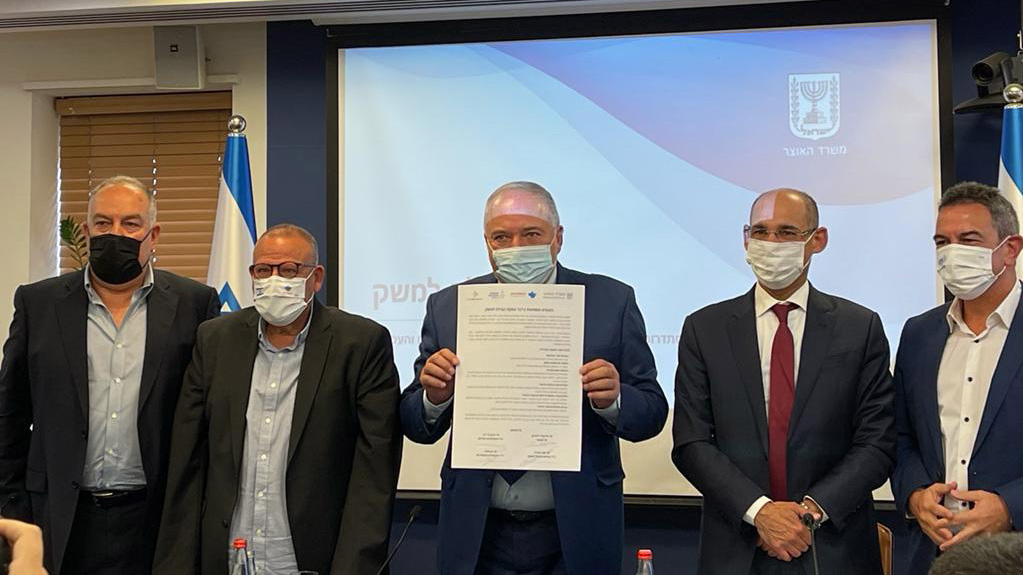
The Finance Ministry, the Bank of Israel, the Histadrut, and other business stakeholders signed a new economic deal last Wednesday which would see the minimum wage gradually increase to 6,000 shekels ($1,923) by 2025, with the first raise happening in April 2022. The deal stipulated that there will be no wage increase or decrease for public sector workers in the next year, and that workers will be able to work one day a week from home.
The economic package is a positive step forward for workers, its stakeholders maintain. Raising the national minimum wage will help in reducing inequality and strengthen the status of low-wage workers. Additionally, the deal will promote managerial flexibility in the private and public sectors, and provide more certainty in labor relations in the public sector – postponing the negotiations for a framework agreement for public sector workers to 2023.
In agreeing to raise the minimum wage for workers, the negotiating parties took into account the state of the labor market and budgetary constraints. They reached the conclusion that a fiscally responsible manner to raise minimum wage would need to happen gradually, with an emphasis on reducing disparities and strengthening the status of low-wage workers.

Principles of the agreements:
April 2022 – 5,400 shekels ($1,731)
April 2023 – 5,500 shekels ($1,763)
April 2024 – 5,700 shekels ($1,827)
April 2025 – 5,800 shekels ($1,859)
December 2025 – 6,000 shekels ($1,923)
- Wages in the public sector will be frozen through 2022, except for amendments in specific sectors, which will be addressed through a special fund. Discussions on a new framework agreement in the public sector will resume during the formation of the 2023 government budget.
- The economic package will also promote legislative amendments aimed at creating flexibility in the labor market and creating a home-work balance. The parties agreed on transitioning the calculation of overtime wages from a daily basis to a monthly basis, excluding underprivileged populations, as is customary in most OECD countries. For context, the global overtime calculation is limited to 17 hours monthly, and applying only to employees who earn only 150% of the minimum wage (7,950 shekels or $2,556). This amount will not increase with the minimum wage.
The change will allow employees and employers to manage work hours more efficiently and tailored to the needs of the employee and employer. It will allow employees the ability to balance work hours with leisure time.
- Employees will receive an additional day off per year, with the demand for shortening the work week and extending the weekend being tabled for the time being.
- In relevant professions in the public sector, it will be possible to work from home one day a week, following a pilot program that began during the height of the pandemic. This is an innovative arrangement that regulates the relationship between the employee and the employer in working from home, allows for the balance between work and leisure, and improves productivity.
- To allow the economy to recover from the social and economic consequences of pandemic and enable the government to function smoothly, the parties have agreed to maintain calm around workers' conflicts in 2022, and to resolve disputes in a designated problem-solving framework.
After the agreement was announced, Finance Minister Avigdor Lieberman touted the significance of what occurred.
“This is great news for the Israeli economy,” Lieberman said. “For the first time in 37 years, we are signing an economic package [of this magnitude] that will lead the economy forward and create employment stability.”
Lieberman continued, stating that when he first took office at the Finance Ministry, he convened all the economic stakeholders to conduct an in-depth action plan to address economic issues among the private and public sectors.
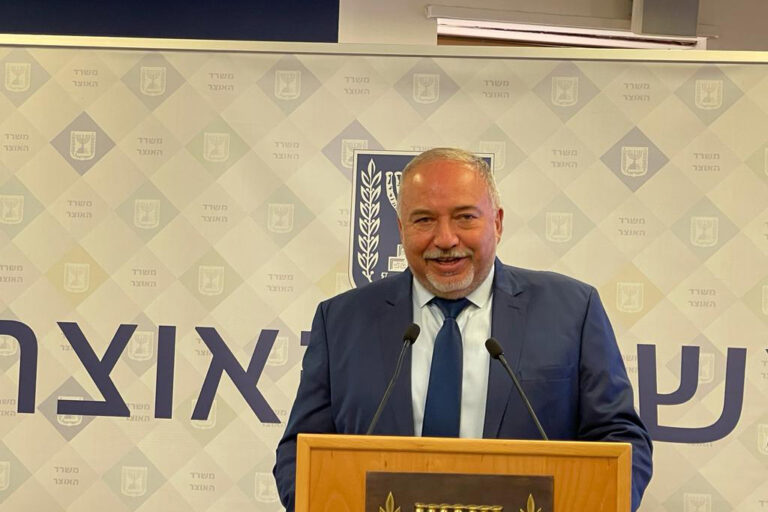
The Finance Minister concluded his remarks with reflecting on the political significance of this economic package: “The fact that we are signing this economic package on the same day as we [the government] is set to approve the first state budget in three and a half years, indicates a real change which will affect both the morale and the growth in the income of every citizen in the State of Israel.”
Histadrut chairman Arnon Bar-David also praised the package and the cooperation with the Finance Ministry.
“The economic package is an important line in labor relations in Israel, which will help rehabilitate the economy and help improve the situation of workers,” Bar-David noted. “A gradual increase in the minimum wage to 6,000 shekels will directly affect hundreds of thousands of families at low wage levels and raise the entire wage level upwards.”
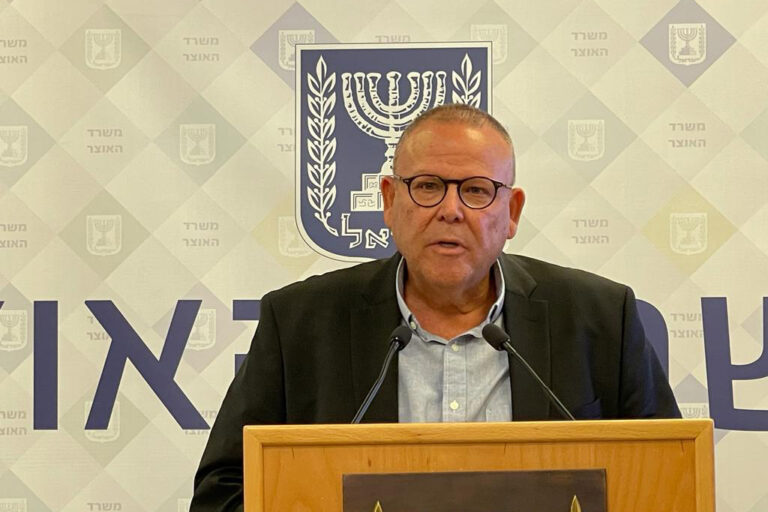
Bar-David acknowledged the significance of this economic agreement that was achieved without conceding any major wage cuts or modifying Israel’s social security system. The Histadrut chairman also welcomed the much-needed inclusion of innovative frameworks for the improvement of work remotely.
“My decision to push for this economic package developed from a deep sense of responsibility for the fate of Israeli society,” Bar-David said. “I want to thank the Minister of Finance and all our partners for understanding how to bridge these economic gaps and for laying down the groundwork for the economy to resume at full-force. This will ensure the recovery of the economy and ensure that all workers enjoy the fruits of this economic growth.”
The Head of the Bank of Israel, Professor Amir Yaron spoke in support of the deal as well: “Just looking at the number of participants and stakeholders in this meeting demonstrates the gravity of this economic package we just signed, with the main implication being the certainty the deal provides from the increased economic activity.”
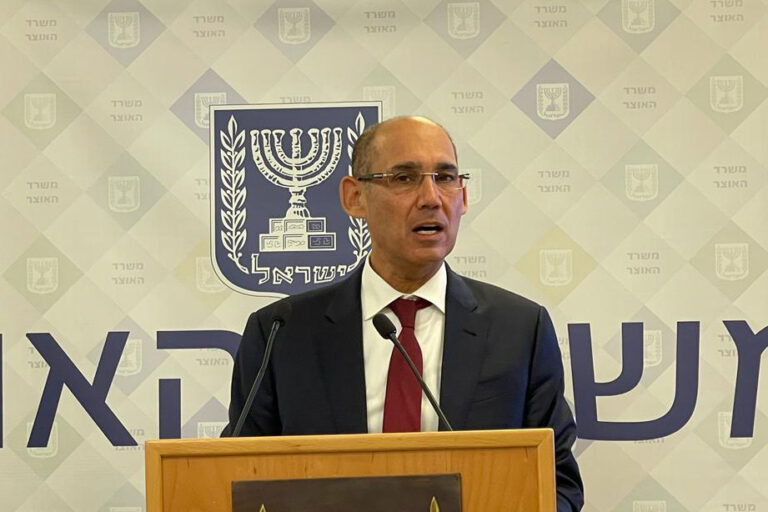
Yaron emphasized that “the industrial calm expected to occur in the public and private sectors is essential for the recovery and ensuing development of the economy.”
“Equally important is demonstrating our ability to cooperate for the benefit of the economy and other important issues such as transportation, education, vocational training and more,” he continued.
Dovi Amitai, Chairman of the Business Sector Presidents organization, commented on the parts of the economic package that addressed the balancing of the needs of both employers and their workers as well as the government.
“We all are operating in a changing and very competitive global business environment,” Amitai explained. “It was important to me to formulate a deal that would allow for change in the labor laws and provide greater flexibility in the job market so as to increase productivity and lead to real growth.”
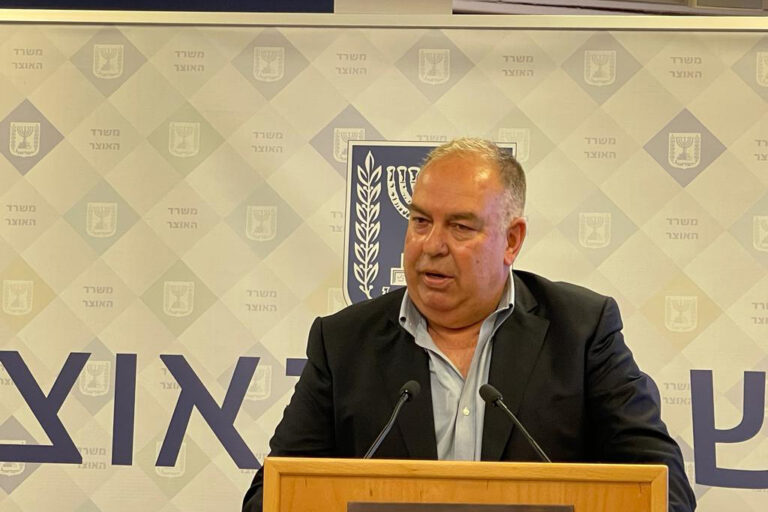
President of the Manufacturer’s Association, Ron Tomer, argued that the deal constitutes a meaningful response to a dramatically changed-reality, due to the pandemic.
“Last year our reality changed in such a way that we still do not fully understand. We only understand that countries that respond faster to changing reality will be better, safer places,” Tomer said. “The agreement we sign today is the first significant response to changing reality. And no less important, it is a jointly agreed-upon, under the Minister of Finance’s significant leadership and high involvement.”






